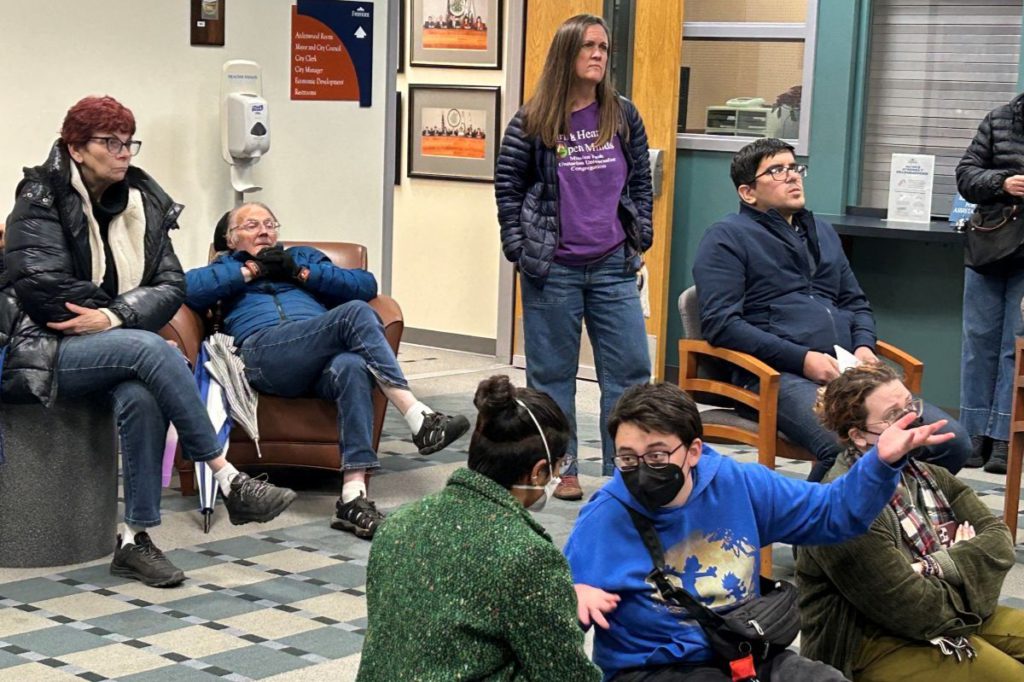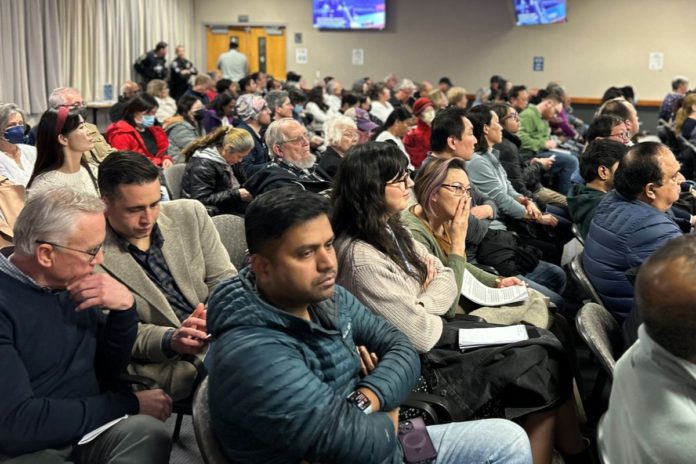On Tuesday, Feb. 11, the Fremont City Council voted 6-1 to ban encampments, passing what is being called one of the most extreme anti-homeless measures in the Bay Area. In addition to prohibiting camping on public property, the new law criminalizes “aiding and abetting” encampments—a clause that has sparked concern over its vague language.
Throughout the night, Fremont Police Chief Sean Washington reiterated that the ordinance aims to “strike a balance between compassion and accountability,” but his assurances did not ease all residents’ concerns.
In the weeks leading up to the vote, speculation spread that the “aiding and abetting” provision could penalize those providing food or assistance to homeless individuals. Washington stated that such handouts are not prohibited, but residents remained frustrated, saying his response lacked clarity when asked to define what constitutes aiding and abetting.
“We need to clarify what aiding and abetting means. We cannot rely on policies when the plain language of the law is unclear,” said meeting attendee Jeanine DeBacker. She added that she believes the ordinance is “cruel.”
The ordinance builds on previous anti-homeless legislation passed by the city council in recent months. It states that encampments negatively impact quality of life in Fremont, citing unsanitary streets, traffic hazards, water pollution and fires.
The law prohibits individuals from possessing “camping paraphernalia,” including sleeping bags and cookware, in public spaces without written approval from the city. It also penalizes those who facilitate or enable violations, with fines of up to $1,000 and possible jail time of up to six months.
A 2024 Point-in-Time count by the Alameda Continuum of Care found that 614 people were experiencing homelessness in Fremont, with 76% living unsheltered on public property.

More than 70 speakers addressed the council during the packed meeting. Some argued the ban is necessary for public safety and the local economy. Matthew Taylor, a real estate advisor, claimed that encampments have discouraged businesses from staying in Fremont.
“I know of businesses who have chosen to relocate or not expand here due to these issues,” Taylor said.
An elderly woman, who said she has lived in Fremont for over 40 years, expressed fear for her safety. Holding up her personal self-defense kit, she urged the council to pass the ordinance.
“I hope I do not have to wear all this whenever I step outside of my house,” she said.
Others fiercely opposed the ordinance, calling it a criminalization of homelessness that does nothing to address root causes. Resident Amy deLanda reminded the council of its 2016 adoption of the “Charter of Compassion,” which calls for the city to “cultivate empathy and put compassion into action.”
“This is immeasurably irresponsible and morally reprehensible,” deLanda said.
Vivian Wan, CEO of homeless assistance organization Abode Services, also criticized the council’s decision. Wan, who has led Abode’s expansion into an organization that now connects 15,000 people annually to housing solutions, expressed disappointment in the vote.
“This is egregious. It does not reflect our community,” Wan said.





Unfortunately this camping ban not only divided the community but showed the underlining racism against the Asian community caused by leadership of Fremont for Everyone that opposed this ban. When the opposition vandalizes businesses that spoke in favor of the ban, or we see posts on social media that characterize all supporters as recent immigrants that are software engineers, are privileged Asians taking over Fremont, or only have a voice if we lived here for more than 20 years. The leadership at Fremont for Everyone needs to publicly condemn this anti-Asian behavior and start the healing process where we all try to address the homeless problem together.
The anti Asian racism has been around in Fremont for a long time. It was not caused by the leadership of Fremont for Everyone. Continuing this rhetoric does not help start to heal the community. Nor does vandalism which needs to be stopped. We ALL need to take a look at our own actions and beliefs and decide what our next steps should be. Whether you were for it or against it.